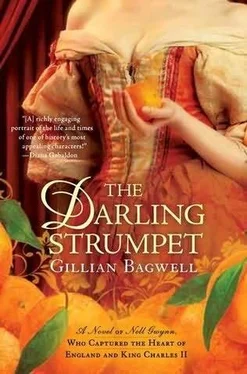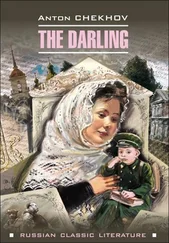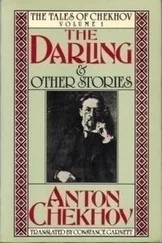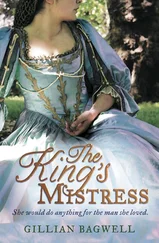She gaped at Buckingham, at Otway, at Savile, hearing as if at a distance her own cries and sobs. The men exchanged agonized and helpless glances, and Savile knelt before her, knelt as one in penance, in supplication, in prayer, the tears cutting clean rivulets through the grime on his cheeks.
“I swear to you I did all that I could.” His voice was urgent, pleading, and he grasped her hands, kissed them, held them to his chest. “I beg of you to believe me. He had the best of doctors. The fever came on of a sudden and consumed him like a fire. By the time it was clear how serious his condition was, there was no time to send word.”
“No,” Nell cried, and again, “No,” as if the word could repel him, could refute the truth she saw in his eyes. She was shaking, couldn’t breathe, was suddenly conscious of her stays binding her and cutting off the breath. She raised her fists to flail at Savile, to beat him away, and then she fell, fainting forward onto him.
NELL LAY ON HER STOMACH, HER FACE PRESSED AGAINST THE PILLOW wet from her tears. She had not known that she could cry so much, that anyone could cry so much. Vast salt oceans had been emptied in service of her grief, and still the tears came. Her head ached and her throat was raw with the sobbing. Her nose ran and yet was so stopped that she could not breathe.
She clutched to her a little shirt that Jemmy had outgrown. His scent clung to it still, and she buried her nose in it, inhaled, as if by smothering herself in his smell she could recall him to her.
Outside her bedroom window, the sun still shone on the beautiful summer evening. The endless day seemed a mockery. Was it possible that all she had felt had passed and that it was still the same day, that night had not yet come to blot out the glaring light? And yet, what difference if and when night came? The night would bring its own terrors, and it would be followed by another day. And another. Endless days and nights, stretching into eternity. Endless pain and sorrow.
She had cried out for little Charlie as soon as she had recovered consciousness, had tried to be brave and comforting for his sake, but in the end could do nothing but hold him to her, telling him over and over that she loved him. He had cried for little Jemmy, but she knew he was also crying for her, that the intensity of her suffering frightened him, and she had been grateful when Rose had taken him gently by the hand and led him off to where they could grieve together.
Bridget sat just outside the door, ready if she should call. Buckingham had been there for hours, with Otway and Savile. Other friends had come, word of the terrible news having spread fast. Even now she could hear low voices outside her door. And yet she felt utterly alone.
For the hundredth time, she pictured little Jemmy in his final moments, fevered, frightened, far from home. Had he called for her? How could she not have heard, even from the distance of Paris?
She rolled onto her back and pressed the pillow into her eyes, wishing for oblivion. For the thousandth time she told herself that she should never have let him go, he was too young, Paris was too far, Savile was not the man to have entrusted him to. Charlie, even at that age, had been more intrepid, stronger, had thrown off her motherly concerns. But her little Jemmy had always been more frail, more fearful. Had he wanted not to go? Had he wished to remain at home, and stifled the plea, not wanting to disappoint, to be thought unmanly? The thought of his gentle eyes, the baby cheeks, and lips set in determination, broke her heart anew. Hot tears came from the place within, and she gave herself up to them once more.
When would Charles come? She longed for the comfort of his arms. He had been hunting at Richmond Park, and though someone had ridden out immediately, it could be hours before he heard the news. And then what? Would he come? Or would she have to bear the pain alone, as she had born so many other pains?
Swift and heavy footsteps sounded outside, the door opened, and Charles rushed across the room, casting off his hat as he took her into his arms.
Nell clung to him and sobbed, and she heard that he, too, was weeping. His hair fell over her face as he cradled her, and the scent of him, the solid familiarity of his arms and body, were a rock of salvation to which she could cling in the heaving ocean of her grief.
THE DAYS PASSED IN BLACKNESS. NELL AWOKE EACH MORNING TO A new shock of pain and loss, a new awareness of raw agony, as if a limb had been lopped off in the night and she woke each day to find herself drenched in blood and straining to make herself whole again. Her body felt heavy, as if she were filled with sand, the slightest movement an overwhelming effort.
Out of the deep pain there began to creep tentacles of anger. Why had Charles insisted that the poor child be sent so far away? Why had she agreed? Why had Savile not done more, why had the doctors failed her child? And a new thought gnawed at her mind. What if his death was more than accident or illness? If someone wished her ill, what better way to strike at her than to take from her her precious baby? Who bore her malice and had the means to plot against her?
Louise.
Nell’s mind fastened on Louise, recently come back from France, and the more she thought, the greater became her certainty. Louise hated her for Charles’s easy affection to her, for the love and admiration the people showed for her, in contrast to the sneering disdain they held for the French interloper. Louise had many friends in France, collected favors owed to her and hoarded them up like apples for a cold winter. What would be easier than for her to induce someone to poison poor Jemmy’s food?
Nell knew it was madness even as she acted, but she could not help herself, was driven onward by white-hot fury. She dressed, summoned her sedan chair, gave orders to be carried to the palace, and made her way to Louise’s apartments, her face a mask of cold vengeance. She would gouge Louise’s eyes from her head, tear the pouting baby lips from her fat face, pull her guts from her belly with bare hands and eat her beating heart.
“Why, Mrs. Nelly!” Louise was surprised to see Nell but rose to greet her.
“You killed him!” Nell shrieked, advancing.
“Killed?” Louise stammered, her maids backing away from Nell as though from a rabid dog. “Killed who?”
“My boy! My Jemmy!” Nell cried. “I know it was you, you venomous bitch!” She rushed at Louise, but her voice had summoned sentries, and hands held her back. She clawed to get free, kicking, scratching, intent on mayhem and death.
“Oh, no!” Louise cried. “No, mon dieu ! Let her go, I pray you.”
Released, Nell collapsed to the floor, sobs wracking her, and Louise knelt beside her and took her face in her hands.
“Madame, please. Nell. I beg of you, listen to me.” Nell grasped Louise’s arms, but for support now, and listened.
“Yes, we have our differences, you and I, and it is true we do not like each other much. But on my soul, and as a mother, I ask you to believe me. I did not harm your sweet boy. I could not. I tell you truly that if you were to disappear from this earth, I would do all within my power to care for your boy as my own. I swear to you.”
Nell saw the truth in Louise’s eyes. What a fool she had made of herself. It was a ridiculous thought to have had. Why had she not made inquiries, gone the subtle way about things, as any sane person would have done?
“Forgive me, madam.” She struggled to rise, but Louise stayed her.
“There is nothing to forgive. If I thought someone had wanted to harm my boy I would have done the same, I assure you. Nelly, would not things be easier for both of us if we ceased our enmity? Perhaps we shall never love one another, but can we not make a new start?”
Читать дальше
Конец ознакомительного отрывка
Купить книгу












